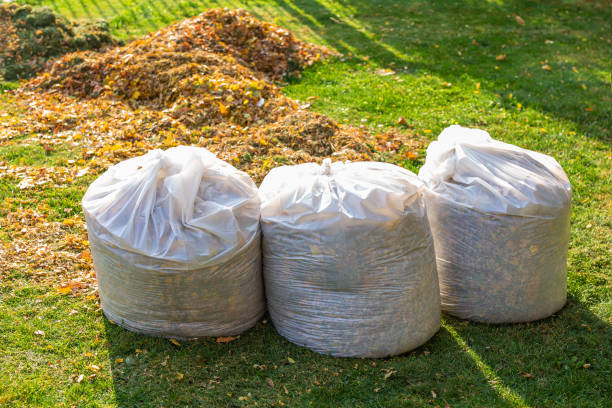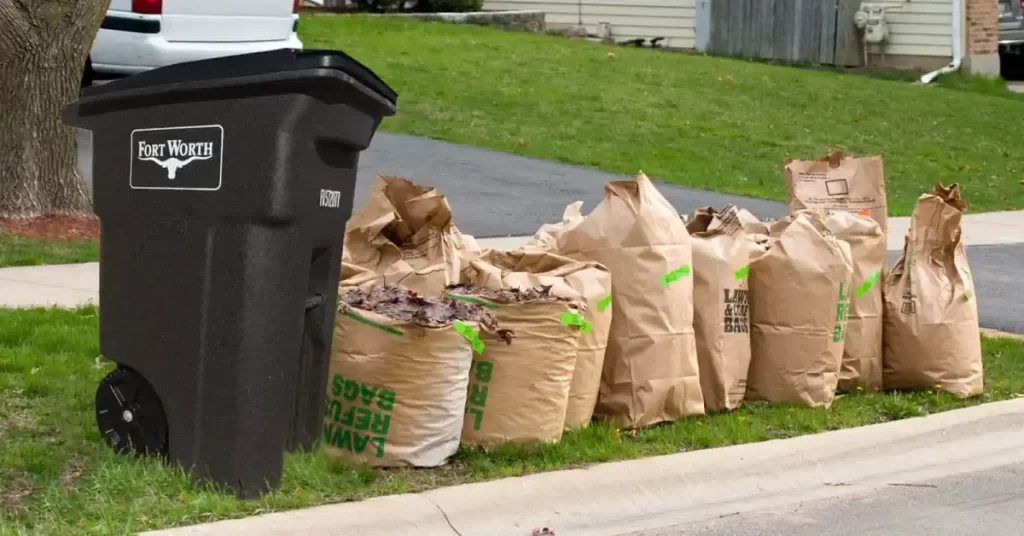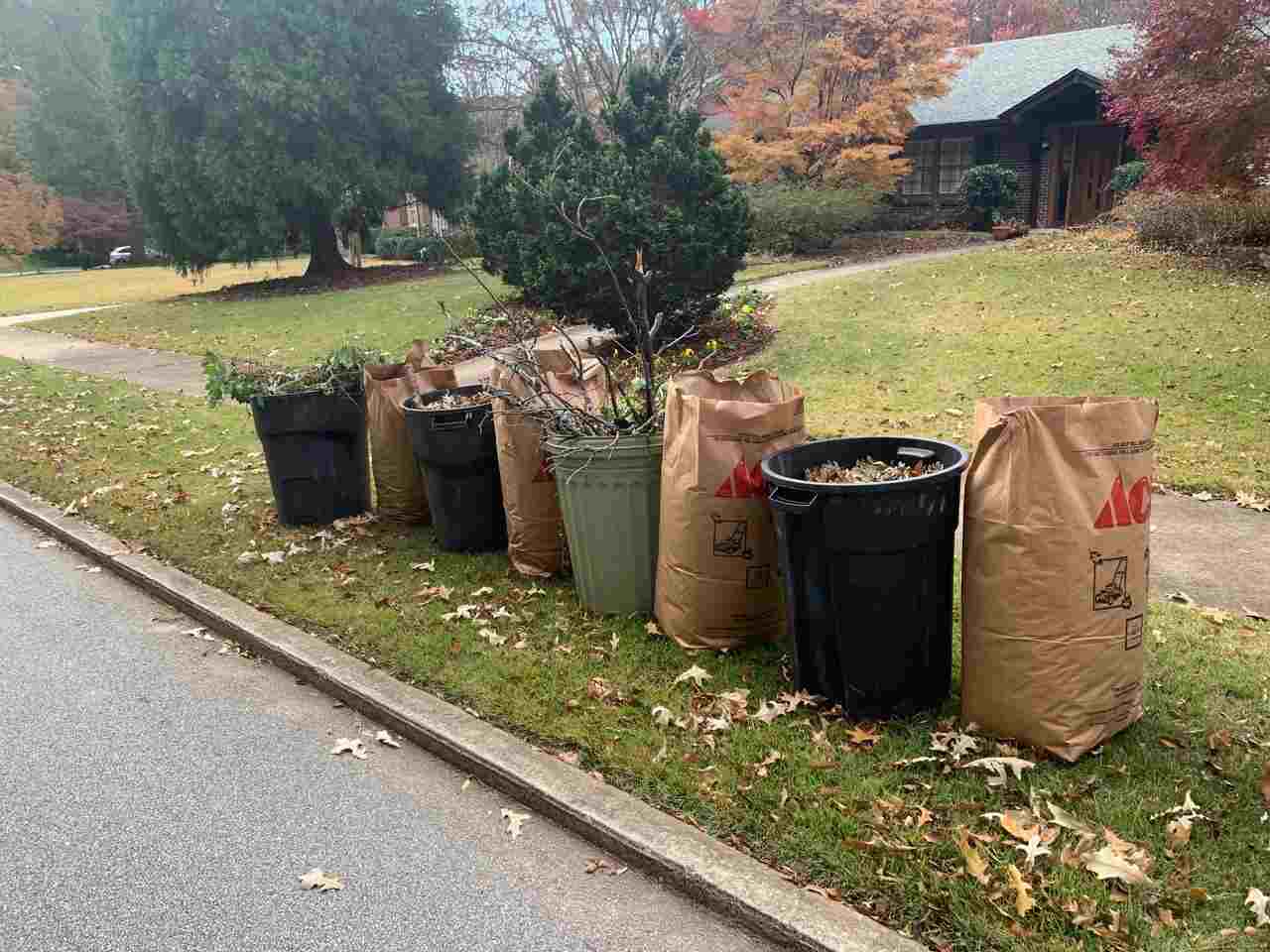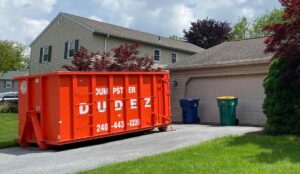In Michigan, reducing yard waste through sustainable practices is not just about tidying up landscapes; it’s about safeguarding the state’s natural beauty and ecological balance. With its diverse ecosystems, including expansive forests, abundant lakes, and fertile farmlands, Michigan faces unique challenges in managing yard waste effectively. By adopting sustainable practices such as composting, grass cycling, and mulching, Michigan residents can play a crucial role in minimizing environmental impacts, conserving resources, and nurturing healthier landscapes. This introduction sets the stage for exploring practical strategies and community-driven initiatives aimed at fostering a culture of responsible yard waste management across the state. Michigan’s rich natural heritage underscores the importance of addressing yard waste sustainably. The introduction highlights how yard waste, comprising grass clippings, leaves, and branches, contributes to environmental degradation when improperly managed. It emphasizes the significance of transitioning towards eco-friendly solutions to mitigate these impacts. Furthermore, the introduction underscores the interconnectedness of Michigan’s ecosystems, illustrating how yard waste reduction isn’t just a local issue but crucial for preserving the state’s ecological integrity. By framing yard waste reduction as a collective responsibility, Michigan residents are encouraged to explore actionable steps and community-driven approaches outlined in subsequent sections, fostering a sense of ownership in preserving the state’s natural splendor.
Greening Michigan: Sustainable Yard Waste Reduction Strategies
Transforming Michigan’s landscapes into eco-friendly havens begins with responsible yard waste management. At A&B Junk Removal, we’re dedicated to offering sustainable solutions for Michigan residents seeking to minimize their environmental footprint.

Introduction to Yard Waste Reduction: A Sustainable Approach for Michigan:
The introduction sets the stage by highlighting the importance of reducing yard waste in Michigan. It provides context for why this topic matters, discussing the environmental impact of yard waste services accumulation, such as increased methane emissions in landfills and nutrient runoff into waterways. By framing yard waste reduction as a sustainable practice, it emphasizes the need for Michigan residents to adopt eco-friendly behaviors to protect the state’s natural resources and mitigate climate change. Additionally, the introduction may briefly touch on the economic benefits of yard waste reduction, such as cost savings for municipalities and homeowners through reduced landfill fees and lower waste management expenses.
Understanding the Environmental Impact of Yard Waste in Michigan:
This section delves deeper into the specific environmental consequences of yard waste accumulation in Michigan. It discusses how organic matter, such as grass clippings, leaves, and branches, contribute to greenhouse gas emissions when disposed of in landfills. Moreover, it explores the effects of nutrient runoff from decomposing yard waste on water quality in Michigan’s lakes and rivers, highlighting the link between yard waste management practices and ecosystem health. By providing a comprehensive overview of these environmental impacts, Michigan residents gain a clearer understanding of why reducing yard waste is essential for preserving the state’s natural beauty and ecological integrity. Additionally, this section may include statistics or case studies to illustrate the scale of the problem and emphasize the urgency of taking action to address it.
Composting 101: Transforming Yard Waste into Nutrient-Rich Soil:
This heading introduces the concept of composting as a practical solution for managing yard waste sustainably. It explains the process of composting, from collecting organic materials like grass clippings, leaves, and food scraps to creating nutrient-rich compost through decomposition. Furthermore, it discusses the benefits of composting, such as reducing the need for chemical fertilizers, improving soil structure and moisture retention, and diverting organic waste from landfills. By providing a step-by-step guide to composting, Michigan residents can learn how to turn their yard waste into a valuable resource for enriching their gardens and landscapes while minimizing their environmental footprint.
Grasscycling: Mowing Techniques for Minimizing Yard Waste:
Grasscycling involves leaving grass clippings on the lawn after mowing, where they decompose and provide nutrients back to the soil. This section explores the benefits of grasscycling, such as reducing the volume of yard waste generated, saving time and energy spent on bagging and disposal, and promoting healthier turf growth. It also provides practical tips for effective grasscycling, such as using a mulching mower, mowing at the right height, and mowing when the grass is dry. By encouraging Michigan residents to adopt grasscycling practices, this heading promotes a simple yet effective strategy for reducing yard waste and maintaining lush, green lawns in an environmentally friendly manner.
Mulching: Harnessing Yard Debris for Soil Health and Weed Control:
Mulching is an excellent method for utilizing yard debris such as leaves, branches, and wood chips to improve soil health and control weeds. This section delves into the benefits of mulching, including retaining moisture in the soil, regulating soil temperature, suppressing weed growth, and preventing erosion. It explains how mulch acts as a protective layer on the soil surface, providing a habitat for beneficial microorganisms and enhancing the overall fertility of the soil. Moreover, it discusses various types of mulch materials available to Michigan residents and offers guidance on selecting the appropriate mulch for different landscaping needs.
Smart Yard Waste Management: Tips for Effective Collection and Disposal:
Effective yard waste management is crucial for minimizing environmental impact and maximizing resource utilization. This section provides practical tips for Michigan residents on how to properly collect, store, and dispose of yard waste. It covers topics such as using biodegradable bags or containers for yard waste storage, avoiding contamination by keeping yard waste separate from other types of waste, and utilizing municipal yard waste collection programs or composting facilities. By promoting smart yard waste management practices, this heading empowers Michigan residents to take responsibility for their waste and make informed decisions that benefit both the environment and their communities.
Community Initiatives: Collaborative Solutions for Yard Waste Reduction in Michigan:
This section explores the role of community-based initiatives in addressing yard waste reduction challenges across Michigan. It highlights the importance of collaboration among local governments, environmental organizations, businesses, and residents to implement effective solutions. Community initiatives may include organizing neighborhood composting programs, hosting educational workshops on sustainable yard maintenance practices, or advocating for policies that support yard waste reduction and recycling efforts. By fostering a sense of collective responsibility and engagement, these initiatives can amplify the impact of individual actions and create a culture of sustainability within Michigan communities.
Educating Michigan Residents Outreach Programs for Sustainable Yard Maintenance:
Education plays a pivotal role in promoting sustainable yard maintenance practices and fostering behavior change among Michigan residents. This section discusses the importance of outreach programs and educational campaigns focused on yard waste reduction. It explores various channels for disseminating information, such as social media, community events, workshops, and educational materials distributed through local government agencies or environmental organizations. Moreover, it emphasizes the need for targeted messaging that resonates with diverse audiences and addresses specific barriers to adopting sustainable practices. By investing in education and outreach efforts, Michigan can empower residents with the knowledge and resources needed to make informed decisions about yard waste management and contribute to a greener, more sustainable future for the state.
Legal Frameworks and Regulations: Navigating Yard Waste Policies in Michigan:
This section examines the legal frameworks and regulations governing yard waste management in Michigan. It outlines relevant state and local policies related to yard waste collection, disposal, and recycling. Additionally, it discusses any incentives or mandates aimed at promoting sustainable yard waste practices, such as tax credits for composting facilities or requirements for municipalities to provide curbside yard waste collection services. By understanding the regulatory landscape, Michigan residents can ensure compliance with laws and regulations while also identifying opportunities to advocate for policy changes that support more sustainable yard waste management practices at both the individual and community levels. Exploring yard waste removal and lawn care through a comprehensive guide offers Michigan residents sustainable practices aimed at reducing yard waste, promoting environmental stewardship and responsible land management.

Future Directions: Innovations and Technologies for Advancing Yard Waste Reduction Efforts in Michigan:
This final section explores future trends and emerging innovations in yard waste reduction that have the potential to transform Michigan’s approach to sustainable landscaping. It highlights technological advancements, such as smart composting systems or robotic lawn mowers, that offer more efficient and environmentally friendly alternatives to traditional yard maintenance practices. Furthermore, it discusses research initiatives and pilot projects aimed at developing novel solutions for recycling yard waste into valuable products, such as biochar or renewable energy. By embracing innovation and investing in research and development, Michigan can stay at the forefront of yard waste reduction efforts and pave the way for a more sustainable and resilient future.
FAQs
What is yard waste, and why is it a concern?
Yard waste includes grass clippings, leaves, branches, and other organic debris. It’s a concern because when sent to landfills, it produces methane, a potent greenhouse gas. Also, nutrient runoff from yard waste can harm water bodies.
How can I reduce yard waste at home?
You can reduce yard waste by composting organic materials like leaves and grass clippings. Also, consider grasscycling by leaving grass clippings on the lawn after mowing to decompose naturally and nourish the soil.
Are there local programs to help with yard waste disposal?
Yes, many Michigan municipalities offer yard waste collection services or have composting facilities where residents can drop off yard waste. Contact your local government or waste management authority for more information.
Can I use yard waste for landscaping?
Absolutely! Yard waste can be used for mulching, which helps retain moisture, suppresses weeds, and improves soil health. Additionally, consider chipping branches and woody debris to use as mulch or compost material.
What are the environmental benefits of reducing yard waste?
By reducing yard waste, you help decrease methane emissions from landfills and mitigate nutrient runoff, which can improve water quality in Michigan’s lakes and rivers. Additionally, using yard waste for composting or mulching enhances soil fertility and reduces the need for chemical fertilizers.
Conclusion
In conclusion, embracing sustainable yard waste practices is imperative for Michigan residents to protect the environment, conserve resources, and promote community well-being. By composting organic materials, adopting grasscycling techniques, and utilizing yard waste for mulching or landscaping, residents can significantly reduce their ecological footprint while enhancing the health and resilience of their landscapes. Moreover, fostering community initiatives, advocating for supportive policies, and embracing innovative technologies will further advance yard waste reduction efforts across the state. Through collective action and individual commitment to sustainability, Michigan can pave the way for a greener, more resilient future, where yard waste is transformed from a problem into a valuable resource for the benefit of all. In the pursuit of reducing yard waste, Michigan residents can engage in educational outreach programs to spread awareness and empower communities with the knowledge and tools necessary for sustainable yard maintenance. Collaborative efforts among local governments, environmental organizations, and businesses can drive the implementation of effective policies and initiatives that support yard waste reduction and recycling. Furthermore, leveraging emerging technologies and innovative solutions holds promise for enhancing the efficiency and effectiveness of yard waste management practices. By embracing these strategies and committing to collective action, Michigan can make significant strides towards achieving a more sustainable and resilient future for generations to come.




